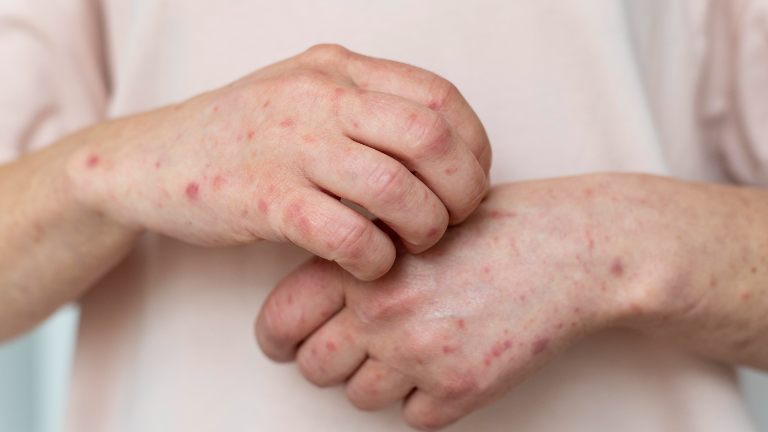The "Monkeypox virus", which came to the fore after the Covid-19 pandemic that devastated the whole world, has created a new epidemic concern among the public. Explaining the symptoms of the disease and the ways to prevent it, Infectious Diseases Specialist Dr. Mehmet Zeki Boztaş said, "Infants and children between the ages of 0-5, the elderly, pregnant women and people with weakened immune systems for any reason should be careful since they are sensitive to the disease in the future."
Stating that monkeypox virus disease is actually an animal disease, Istanbul Gelisim University, Faculty of Dentistry, Asst. Prof. Mehmet Zeki Boztaş, “Monkeypox virus is normally found in animals such as wild small rodents and monkeys living in rural, forest regions of some African countries. However, it was transmitted to Africans who entered these wildlife regions due to reasons such as poverty, constant migration, civil wars, global warming, and even had to kill and slaughter and eat these animals. The monkeypox virus was first detected in 1958 when Danish scientists examined monkeys with numerous water-filled wounds on their skin. The first person to be diagnosed with monkeypox virus (MPV) was a 9-month-old Congolese child in 1970, and the first human-to-human transmission occurred in 2017. "
"The risk of death may increase in individuals with low immune systems infected with the disease"
Stating that the three most common sypmtoms in patients are fever, swelling of the lymph nodes and skin rashes, Asst. Prof. Mehmet Zeki Boztaş also added: "While the incubation period takes about 5-21 days on average, the full recovery period can take up to 2-4 weeks. Those who survive the disease do not have scars on the skin. Type 1 MPV is heavier while Type 2 MPV is lighter. While the disease rarely causes permanent damage to some organs, the mortality rate has been reported to be between 0% and 10% in various outbreaks. Contamination of Type 1 MPV, which is more dangerous among the situations that increase the likelihood of death, if a rodent carrying a germ has bitten or scratched the person,
if the person is sensitive to this virus, the rate of microbes taken into the body is high and the person's immune system is weak can be the cases where morality rate is high."
"While the smallpox vaccine creates immunity against the disease, the chickenpox vaccine does not provide immunity"
Stating that those in the risk group should be careful against the disease, Asst. Prof. Mehmet Zeki Boztaş said, "Infants and children between the ages of 0-5, the elderly, pregnant women and people with weakened immune systems for any reason should be careful because they are more sensitive to the disease. People younger than 40 are more susceptible to this microbe than those older than 50. Because it is known that the smallpox vaccine, which was applied to all our citizens in our country until 1980, provided 85% immunity against MPV. The chickenpox vaccine, which is frequently on the agenda, does not provide immunity against MPV because the chickenpox virus belongs to a completely different group.”
Istanbul Gelisim University, Faculty of Dentistry, Asst. Prof. Mehmet Zeki Bozta listed the ways of protection from monkeypox virus item by item:
1- Contact with patients with fever and rash should be avoided, and if contact is to be made, it should be used with gloves and masks.
2- Clothes, bed linen and towels of people with the disease should not be used.
3-Cups, forks, spoons and plates that patients touched with should not be used.
4- Sexual contact with infected individuals should be avoided as the disease can also be transmitted sexually.
5- Hands should be washed frequently with soap and water or alcohol-based disinfectant should be used to protect from the virus.
6- Contact with wild animals should be avoided against the risk of virus.
7- Care should be taken to cook thoroughly in meat consumption.
8- Individuals with monkeypox virus should isolate themselves and stay at home, if it is absolutely necessary to go out, it should be for a short time. Clothes that will cover the wounds on the skin surface while outside should be preferred.
9- The isolation period should last until all body lesions are completely healed (4 weeks on average).
 Created Date: : Tuesday, August 27, 2024
Created Date: : Tuesday, August 27, 2024
The photography exhibition themed “In the Paw Prints,” organized as part of...
Istanbul Gelisim University (IGU) Software Engineering Department senior st...







